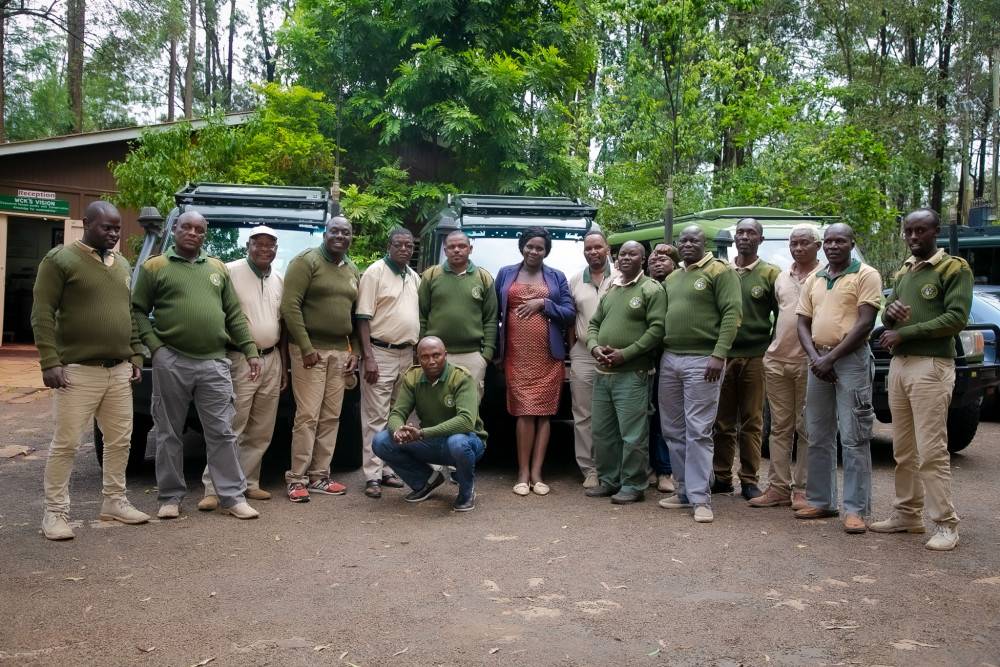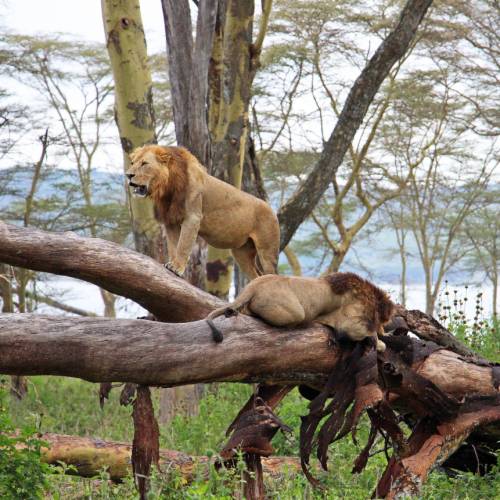New Ideas To Deciding On Kenya Day Tours
Wiki Article
What Are The Safety And Security Factors I Should Be Aware Of When Traveling To Mombasa In Kenya?
It is important to be aware of the safety and security issues when you visit Mombasa in Kenya. This will help ensure an enjoyable and stress-free trip. Keep in mind these key points:
1. General Safety
Be informed: Make sure to keep up on the latest local news, and also any travel warnings from your country.
Register with your Embassy: If applicable, register at your consulate or embassy in Kenya to assist you in the event of an emergency.
2. Health Precautions
Immunizations - Make sure you've received all your regular vaccinations. Additionally, you should consider purchasing additional vaccines for Hepatitis A and Hepatitis B, Typhoid Fever as well as Yellow Fever.
Mombasa is a malaria-prone region and is one to avoid. Make use of antimalarial medicines, insect repellents and long sleeves during the evening.
Food and water security Drink boiled, bottled or cooked water. Avoid freezing. Street food is not recommended.
3. Personal Security
Avoid walking alone in the dark. Be sure to stay in areas that are well lit with lots of people. Avoid walking at night on beaches or in remote areas.
Secure your valuables. Use hotel safety deposit boxes to store valuables such as money and passports. Do not display expensive jewelry or electronics.
Choose a trusted transportation option: Use certified taxis, ride hailing services, or transportation arranged by your Hotel. Avoid unmarked cars.
4. Local Laws and Customs
Be respectful of local culture. Dress modestly when visiting religious places. Be aware of local customs and traditions.
The Kenyan Drug laws are strict, and they carry harsh sanctions. Avoid any involvement with illicit drugs.
Photography: Always ask permission prior to taking photos of people, particularly in rural areas, or of government or military structures.
5. Beach Safety and Water Safety
Swimming safely. Pay attention to the local guidelines. Use designated areas for swimming.
Marine wildlife: be aware of marine life like sea urchins and jellyfish. If you are walking along the beach, make sure you wear suitable footwear.
6. Crime Prevention
Petty crime: In busy areas, bag-snatching or pickpocketing could happen. Be vigilant and keep your possessions close to you.
Scams: Be cautious of strangers who offer help that seems too generous or offer too appealing to be true. Make sure to use licensed tour operators.
Emergency Contacts - Be aware of the local emergency number (999) which includes the Fire Department (999) as well as the Ambulance Service (999). Contact information for the embassy or consulate of your country must be kept handy.
7. Natural Hazards
Weather: The climate of Mombasa is tropical, which can cause floods or heavy rains, particularly in the rainy season (April-June) and from October to November. Be aware of forecasts for weather.
Sun Protection Use sunscreen and wear a hat to prevent sunburn.
8. Travel Insurance
Comprehensive Coverage: Ensure you are covered by travel insurance that includes medical emergency situations, theft, loss and travel interruptions. Examine the coverage in your policy in relation to activities such as water sports.
You'll be able to enjoy your time in Mombasa with peace of mind by keeping these safety and security tips in mind. Take a look at the best Kenya safaris for site examples including safari excursions, safar kenya, mombasa safari packages, kenya safaris and tours, trip tour companies, african safari excursions, beach in mombasa, trips to kenya safari, travel tour companies, kenya tours and more.

What Weather Considerations Must I Know Before I Travel To Mombasa, Kenya?
Understanding the weather patterns in Mombasa is crucial to packing and getting the most out of your vacation. Here are some important aspects to keep in mind.
1. Climate Overview
Mombasa's tropical climate is hot and humid all through the year. Warm temperatures are expected and the temperatures are usually between 24degC(75degF), and 32degC(90degF).
2. Seasons
The season of hot and humid (November through April): During this period, temperatures are high and humidity high. It's also the most popular tourism season, especially in December and January.
Long rains (April from April to June) This time of year brings heavy rainfalls, and at times, thunderstorms. It is possible for roads to become muddy. It is also the time of year when tourism slows down. tourism.
Cooler season (June to Oktober): The temperatures and humidity levels are the lowest at this time. The weather is usually pleasant and ideal for outdoor sports.
Short Rains (October - November): These are short showers of rain that are less intense. The rains tend to be only a few minutes, later, sunshine follows.
3. Tips for packing
Bring lightweight, breathable clothing like cotton or linen to stay cool in hot temperatures.
Rain Gear - If traveling during rainy season ensure you bring an outfit with a water-resistant coating, an umbrella as well as waterproof footwear.
Sun Protection: Use sunscreen with an SPF of high. Wear a wide brimmed glasses and a hat. Wear clothing that covers the skin.
Swimwear: Bring your swimming attire to the beach or hotel pool.
4. Weather-Specific Activity
Beach Time: The most ideal time to be at the beach is during the cooler months (June-October) in which the weather and conditions are pleasant.
A calm and clear ocean is perfect for snorkeling, diving, and other watersports between November and March.
Wildlife Viewing The cooler season (June to October) is also a good time for wildlife excursions and safaris, as the weather is more bearable.
5. Health-related Considerations
Stay hydrated in the humid, hot climate. Drink lots of water especially when you're outside.
Heat-related Infections: Know that heat exhaustion and heatstroke are possible. Wear loose clothing, take breaks under the shade and stay away from strenuous exercise during peak temperatures.
6. Adjustments for Travel
Rainy Season Travel: Prepare to face travel delays and disruptions if you go to in the season of rain. You may find that some roads are closed and outdoor activities may be restricted.
The rainy season can sometimes cause flight delays. Plan your trip ahead and be aware of any delays.
7. Environmental Concerns
Natural Hazards. Be aware of the dangers of flooding when rains are heavy. Be aware of weather conditions and take the local warnings regarding safety.
Tide Awareness: When planning beach activities be aware of the tides that can change dramatically. Be sure to check the tide schedule for your locale prior to swimming or beachcombing.
If you are aware of the significance of weather, you will be prepared to plan your vacation, pack correctly and ensure that your stay in Mombasa is secure. Take a look at the best park funzi for website examples including mombasa tour packages, mombasa beach kenya, tours & safaris, kenya tours, kenya beach mombasa, luxurious african safari, mombasa beach kenya, mombasa tour companies, travel & tours company, tour firms in kenya and more.

What Financial Planning Considerations Do I Have To Be Aware Of While I Am On Holiday In Mombasa, Kenya?
If you are thinking of a trip to Mombasa, Kenya be sure that you plan your finances carefully. It will guarantee that the trip is enjoyable. Be aware of these factors that affect your finances:
1. Budgeting
Accommodation: Do your research and book your accommodations in advance. Prices can vary widely depending on the kind of property and the location of accommodation.
Transportation: Include cost for flights, transportation costs (taxis matatus tuktuks car rental) and other excursions.
Budget for food and dining that includes dining out and snacking. From budget-friendly restaurants to high-end ones, the prices may vary.
You can plan ahead for events and tours. These can include guided tours, entry fees to attractions and water sports, such as safaris or cultural tours.
2. Exchange Rates and Currency
Kenyan Shilling is the local currency. Find out the current exchange rate.
Currency Exchange Money with trustworthy banks and bureaus for currency. You could also exchange your currency in the hotel. Avoid exchanging money in the streets.
ATMs can be found in Mombasa. Make sure your card is suitable for international withdrawals and take note of any charges.
3. Payment Methods
Cash: Always bring cash with you to pay for things like small purchases, tips and in places that accept credit cards.
Major credit cards are accepted at hotels, restaurants and larger shops. Inform your bank that you are planning to travel so your card won't be blocked.
M-Pesa: M Pesa has become an extremely popular mobile payment system in Kenya. This is particularly useful to local SIM cards.
4. Make money using these easy tips
Travel Off-Season. If you travel during the off-season or shoulder (April to October and November to April), you can save money on flights, hotels and other travel expenses.
Pre-book: Secure lower prices on flights, accommodation and tours when you book early enough in advance.
Local Eateries: Eat at local restaurants and food stalls to enjoy a more authentic and budget-friendly experience.
5. Tipping
Tipping in Kenya is a standard practice. In restaurants 10% is considered the minimum tip for services that aren't included. You can choose to tip drivers, hotel staff and guides.
It's great to give small amounts of money in local currency. Tipping porters should be between KES 50 and 100 per bag. Tipp housekeepers at least 100 kES per day.
6. Emergency Funds
Reserve funds : Make sure that you have an emergency fund on hand, and that you are able to access funds using a debit or credit card in the event of a need.
Travel Insurance: Purchase comprehensive travel insurance that covers medical emergencies as well in trip cancellations. It also shields you from theft and loss.
7. The Safety of Your Own Home
Secure valuables: Keep spare cash, passports, and other valuables in the hotel's safe. Use caution when using ATMs during the night particularly in the evening.
Avoid carrying large sums. Do not carry large cash in your. Divide money and cards among your wallet and a secure place.
8. Local Transactions
Bargaining: Bargaining is a common practice in local markets. It is crucial to conduct the process with respect, humour and with the intention of achieving an equitable deal.
Receipts and Records: Keep records of all transactions that are major as well as purchases. This can be useful for tracking your budget, and also in the event that you encounter disputes.
9. Understanding Fees
It is possible to check with your bank the fees related to international withdrawals. Certain ATMs might charge fees when using foreign credit cards.
Currency Conversion Fees Be aware of fees your bank might charge for currency conversion when you use your debit or credit card in another country.
You will be able to enjoy a stress-free holiday in Mombasa by directing your finances efficiently. Read the top rated kenya tours and safaris Wasini Watamu for website tips including cheap kenya safari packages, kenya tour operator, safari excursions, kenya safari holiday, tour company in kenya, african safari tours kenya, mombasa packages, kenya tour operator, african safari excursions, luxurious african safari and more.
